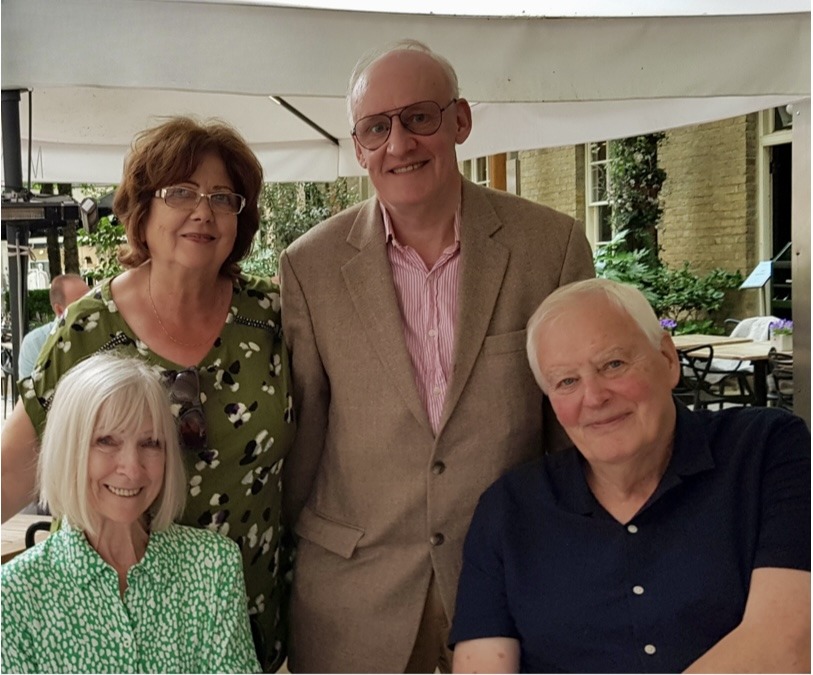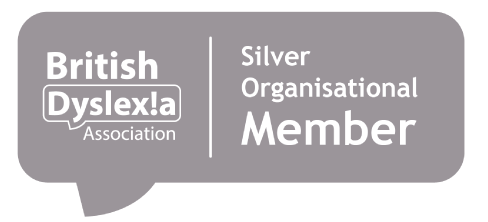
About Us and our Dyslexia Screening Services
QS Dyslexia Tests is part of Pico Educational Systems Limited (Pico), creator of the first online dyslexia screening test.
We offer three services – two for dyslexia screening and one for reading:
- QuickScreen Dyslexia Test for individuals and organisations
- QuickScan Dyslexia Questionnaire for individuals and organisations
- Reading Skills Test for individuals and organisations
These are available to English speaking adults and young people across the world and in organisations across the UK, Australia, USA, Canada and New Zealand.
What is our mission?
Our mission is to ensure that everyone can access a dyslexia screening service to discover if they are dyslexic.
We provide a much needed service, at costs that are so reasonable, that nobody is left in a situation of not being able to afford to find out if they are dyslexic.
Pico was formed to create and enable SpLD/dyslexia screening products to be more widely accessible to the public.
In 1997, Pico launched the first ever computer-based dyslexia screening assessment for adults and young people. This was hugely innovative.
Twenty years later in 2017 we launched QuickScreen (and the QS Dyslexia Tests brand) on the latest technological platforms with versions for individuals and organisations, while also updating the QuickScan dyslexia screening questionnaire.
Pico Educational Systems Ltd is well established and has achieved recognition for its contribution to Dyslexia/SpLd (special learning difficulty) and is a long-standing supporting member of the BDA.
Our continued focus is to find ways in which we can develop and improve, to extend the scope of our dyslexia screening services and to make them as informative and useful as possible.
“The online test procedures are proving to be a valid method for the identification of adults with learning difficulties both of a dyslexic and more general nature. They enable group and individual dyslexia screening assessments to be efficiently carried out in terms of cost and time allocations. The individual profiles obtained assist with subsequent consultations in the design of appropriate strategies to cope better with difficulties of a personal, intellectual or educational kind.”
County Educational Psychologist
How our journey started
When first created in 1997, Pico’s computer-based dyslexia screening assessment was quite an innovative concept (known then as The StudyScan Suite).
This was the first computerised dyslexia screening test for adults to be produced, and arguably somewhat ahead of its time.
It arose out of solid academic and clinical expertise via a senior research fellowship and specialist team at Kingston University, part of the government funded project on widening participation in Higher Education, and a Phd successfully completed by our lead dyslexia consultant at Leicester University.
The early development work for the dyslexia screening test was overseen by a group of eminent dyslexia specialists – including the chief educational psychologist of Surrey, the Director of Studies of Dyslexia Action, the author of the mainstream publication Adult Dyslexia, as well as several other consultant psychologists and statisticians (see Research page for details).
Not many people had a personal computer; let alone access to mobile devices and social media. It was no wonder that the idea of online dyslexia screening was treated with a degree of scepticism.
However, these early barriers did not totally derail us, because we knew that the level of need for dyslexia screening (between 10-20% of the population) would never be met via the existing system of one-to-one assessments, carried out by (not enough) educational psychologists, at costs which would automatically exclude whole swathes of the population.
This national situation necessarily and unfortunately gave rise to a lot of unhelpful ‘misinformation’, such as describing dyslexia as a ‘middle class’ condition.
This incurred the indignation of individual academics who to this day are convinced that it is just used as an excuse for poor performance in certain sections of society.
Those who did not have access to enough funds, to private tutors, small class sizes, educational psychologists and the rest, were the ones to suffer the greatest losses.
As we know from studies and dyslexia screening carried out in young offenders institutions, many of their intake (over 40% see ref on QuickScan for Organisations FAQs) have dyslexia and associated learning difficulties.
Other adults have spent decades doing jobs that were inappropriate for their actual abilities because they never got access to testing, recognition and support.
How things changed in 2017
In Summer 2017 a tweet from an adult dyslexic, who acts as a dyslexic representative for the public sector, asked “Is it fair to have to pay to be dyslexic? Many adults cannot afford the £500+ required to get a full assessment and therefore remain undiagnosed and ‘suffer in silence’.”
So we could see that there was recognition that with an easy to access online dyslexia screening test, adults could get skills updates for study requirements, exam concessions and provide employers with a basis for individual training and in-work support. This is certainly true now in many areas of public life and work.
However, there still is a requirement for a full diagnostic dyslexia screening assessment carried out one to one with an educational psychologist or certified dyslexia tutor, for gaining access to student disability funding at university.
One success for students at university is the rule that the assessment report can be used as proof of dyslexia – one that has been carried out at any time – not just within the preceding 2 year slot, as was the case previously.
So today, at least, people are not turned away from a university degree because of their dyslexia, and many professions are actively seeking the talents and specific qualities that belong to adults with unique creative skills who are dyslexic / neurodiverse.
Our belief is that online dyslexia screening tests are very cost effective. If someone has not been assessed officially, or perhaps cannot afford to pay for a one-to-one assessment, there should be other options for them.
Working on-line has become the norm and it is the pen and paper test that could be considered somewhat incomplete in its scope, when testing relevant skills for current day requirements.
If someone completes one or several reputable online dyslexia screening tests that show clear indications of dyslexia, then it is safe to say that the outcome is assured.
We created QuickScreen as we felt passionate about offering a professional SpLD/dyslexia screening tool to anyone who wished to find out if they have positive dyslexia symptoms.
Meet the Pico Executive Team

Dr. Dorota Walker ( nee zdzienski)
Dorota devised the QS products, having been awarded her PhD entitled ‘Dyslexia in Higher Education’ at Leicester University for the original work she did to produce these dyslexia screening test procedures. She is our Lead Dyslexia Consultant and a Director for Pico Educational Systems Ltd.
Dorota has several decades of experience in a wide variety of posts within the SpLD sector, ranging from teaching and dyslexia screening assessments to lecturing and running teacher training courses and presenting papers at local, national and international conferences (see more on our research page).
More recently she has participated in public sector training courses on dyslexia and wellbeing. She is always happy to offer her support to adults with SpLD/dyslexia and their employers or tutors.
Michael Walker
Michael’s background is in Banking where he held a number of Executive roles specialising in Product Development, Training and Team Development. He takes pride in the ‘Team Concept’ actively encouraging staff to expand their abilities to the full.
He had such a belief in the value of QS dyslexia screening that he made a substantial investment in the Pico Company, as the Managing Director, knowing that this was undoubtedly a really good tool for all organisations concerned with the educational wellbeing of their members.
Rae Hodson
Rae’s background in corporate administration and marketing gives new meaning to the term “multi-skilling”!
She runs Pico’s help and enquiries line and as such is often the first port of call for both current and potential clients, providing detailed dyslexia screening product information and programme support.
Rae also manages our extensive client database and keeps track of licensing details and renewal information.
Steve Renow
With a background in broadcast and corporate television, Steve helped to produce the original QuickScan dyslexia screening questionnaire and developed many of the technical aspects.
He brought the original programme release up to date with QuickScan OnLine and added keyboard and audio support to meet accessibility requirements.
In his role of Technical Support for our dyslexia screening solutions, Steve provides continuing IT back up and has produced several bespoke modifications to resolve specific application issues for clients.
Our BDA Partnership

We have been proud to be silver corporate members of the British Dyslexia Association for a number of years, until they recently disbanded this scheme. They have our continuous support for raising awareness of dyslexia screening – including participating in Dyslexia Awareness Weeks over the years.
Our Research & Development Partners
There have been many organisations that have supported our vision and offered us practical support with research and feedback, or just the opportunity to do dyslexia screening assessment work.
In chronological order:
- Kingston University (where is all started)
- Surrey University (extensive student trials)
- Leicester University (host for the PhD)
- Guildford University (statistical expertise)
- University of Ulster (research trial)
- West Kent College ( research and support)
- East London Uni, Southbank Uni and Croydon college where our consultants gained clinical experience from carrying out assessments
- Cardiff University (study support staff who worked with us on the first beta version of the test and offered us a control group for the research project).
Our Business Partners
Pico Education would also like to thank Emma Pearce and her team at Pearce Marketing who have worked with us from the beginning of this project. Emma is now utilising her talents in a new direction.
However we are delighted to have the support and expertise of one of her team –
Kelsey Bramble from Social Suites ([email protected]) who will continue to assist us with customer feedback, marketing planning and advise us on various marketing activities for our dyslexia screening services.
Our website development (Laura from Neptune Media) together with Hive and Host continue to work with us.
They are a wonderful team!
